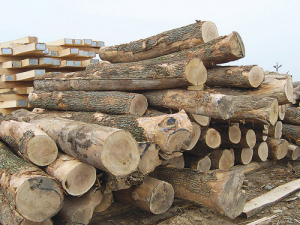ETS costs cut 66% for forest owners – McClay
Additional reductions to costs for forest owners in the Emissions Trading Scheme Registry (ETS) have been announced by the Government.
 The Government will contribute $10.2 million from the Sustainable Food and Fibre Futures fund to back technical innovation in the forestry industry.
The Government will contribute $10.2 million from the Sustainable Food and Fibre Futures fund to back technical innovation in the forestry industry.
An innovative high-tech approach to forestry management could transform New Zealand’s forestry industry, Forestry Minister Stuart Nash and Agriculture Minister Damien O’Connor announced today.
The Government is backing Precision Silviculture, a $25.5 million, seven-year programme led by Forest Growers Research Limited (FGR). The Government will contribute $10.2 million from the Ministry for Primary Industries’ Sustainable Food and Fibre Futures fund (SFF Futures).
The programme involves four workstreams.
The first workstream, Nursery, is focused on reducing seedling costs to the forest owner, including nursery labour costs and non-labour costs such as seed and fertiliser.
The second workstream, Planting, focuses on reducing the cost of planting by moving from manual planting to multiple mechanical planting and preparation operations.
Workstream three, Pruning, is focused on reducing the costs of pruning by moving from manual pruning to mechanical pruning equipment.
The fourth workstream, Thinning, is designed to reduce reliance on manual labour for forest operations and create a safer work environment.
Forestry Minister Stuart Nash says the investment is part of the Government’s wider plan to provide economic security to workers and businesses, with higher skilled and high-wage jobs that support a low-emissions economy.
“Silviculture is about controlling the composition, structure, growth and quality of a forest. It is essential to manage and create value from our plantation forests however it has remained a highly manual and labour-intensive work practice.
“The programme will focus on developing mechanisation, automation, digital technology and robotics in the silviculture value chain. This will have a major impact on the key silvicultural areas of planting, pruning and thinning, as well as in-nursery activities,” Nash says.
“The innovative use of technology offers multiple benefits for the forestry sector. It will make silviculture work safer, more productive and more attractive to workers. The programme includes re-training workers to match the transition into high-tech jobs.
“It will also enable the forestry workforce to create higher-value products more efficiently.
“Advancements in mechanisation and precision automation will make the recovery of forest waste more financially viable. This will unlock potential to use biomass waste in new manufacturing chains. This could include biofuels and biodegradable alternatives to plastic products, such as disposable cups and packaging.”
Agriculture Minister Damien O’Connor says the timing is right for the programme.
“A large number of forests planted in the 1990s are due for harvesting in the mid-2020s, so it’s an ideal time for this overhaul,” O’Connor says.
“It’s estimated that in total the programme has the potential to deliver $530 million of value to the plantation forestry sector and $190 million worth of innovative technology sales between now and 2035. Other benefits will be an improved pruned log supply for domestic wood processors, and use of the technology in indigenous forest establishment.
“This SFF Futures investment will enable the forestry industry to evolve at a pace that wouldn’t otherwise be possible. The programme fits with our Fit for a Better World roadmap for the food and fibre sector, which aims to boost sustainability, productivity and jobs over 10 years. The roadmap will help drive our economic recovery from Covid-19.
“We look forward to working with FGR to build a sustainable, profitable and internationally competitive forestry sector that delivers higher economic returns for New Zealand.”
Global trade has been thrown into another bout of uncertainty following the overnight ruling by US Supreme Court, striking down President Donald Trump's decision to impose additional tariffs on trading partners.
Controls on the movement of fruit and vegetables in the Auckland suburb of Mt Roskill have been lifted.
Fonterra farmer shareholders and unit holders are in line for another payment in April.
Farmers are being encouraged to take a closer look at the refrigerants running inside their on-farm systems, as international and domestic pressure continues to build on high global warming potential (GWP) 400-series refrigerants.
As expected, Fonterra has lifted its 2025-26 forecast farmgate milk price mid-point to $9.50/kgMS.
Bovonic says a return on investment study has found its automated mastitis detection technology, QuadSense, is delivering financial, labour, and animal-health benefits on New Zealand dairy farms worth an estimated $29,547 per season.

OPINION: Here w go: the election date is set for November 7 and the politicians are out of the gate…
OPINION: ECan data was released a few days ago showing Canterbury farmers have made “giant strides on environmental performance”.